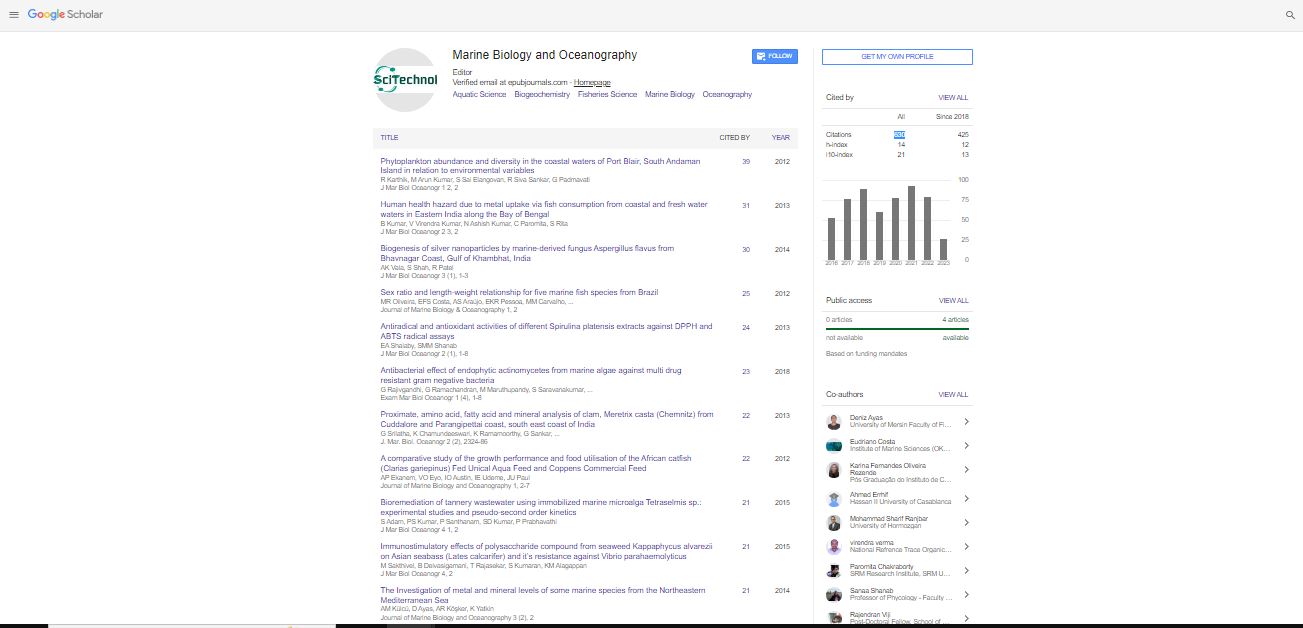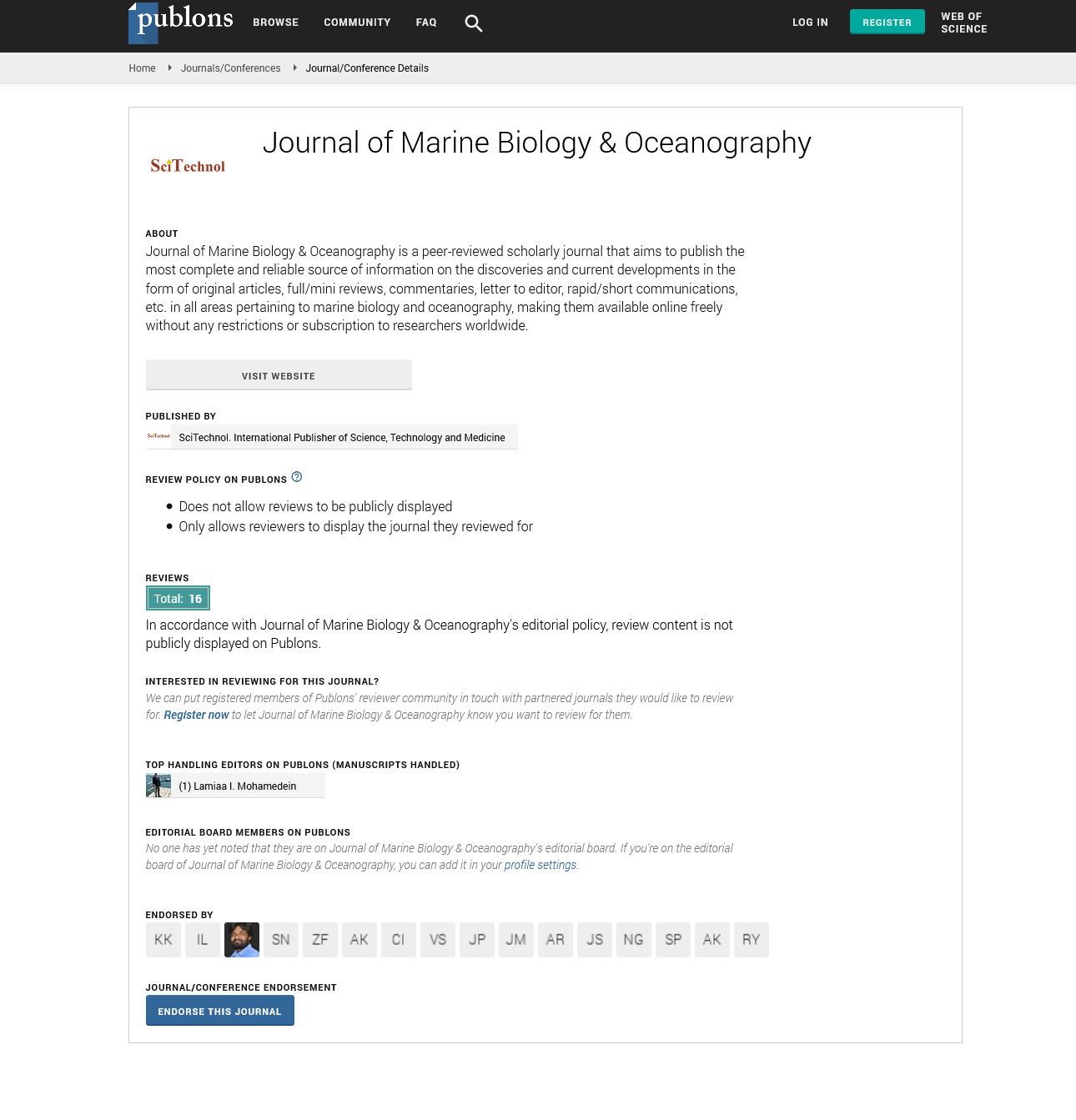Co-introduced copepod Mytilicola orientalis in mussel Mytilus galloprovincialis from aquaculture area in Northern Adriatic
Ines Kovacic, Dijana Pavicic-Hamer, Martin Pfannkuchen and Matteo Usich
Juraj Dobrila University of Pula, Croatia, European Union
Institut Ruder Boskovic, Croatia, European Union
: J Mar Biol Oceanogr
Abstract
Statement of the Problem: Mytilicola orientalis is a coinvading copepod that have been co-introduced with infested oysters and mussels from Japan into North America, established self-sustaining populations and then spread from European Atlantic Coast, to new, native hosts in Mediterranean. Relatively recent introduction of M. orientalis in the Mediterranean is of a great concern because it can spread and infest native mussel Mytillus galloprovincialis that are important aquaculture resources in Croatia. The magnitude of the threat posed to native species by co-invaders will depend, among other things, on parasite ability to infect a native host. However, the presence and infection level of M. orientalis in native and farmed mussel from Adriatic Sea has not been previously studied. The purpose of this study is to observe the presence of M. orientalis in native M. galloprovincialis from Rovinj coastal area and aquaculture area in Lim Bay, the Northern Adriatic, Croatia. Methodology & Theoretical Orientation: Prevalence and intensity of infection with M. orientalis was observed from April to August 2012. Condition index was measured to understand the relationship between mussel physiological state and level of infection in which M. orientalis occurs. Findings: Our study shows the ï¬Ârst identiï¬Âcation of M. orientalis in the Northern Adriatic. The adult stages of the copepod occur in mussels from Lim Bay from May to August. The mean intensity of infestation and prevalence reached the maximum in August. Although, condition index was related with seasonal cycle, level of infection has no issue. Conclusion & Significance: Since we found copepod in mussels from nearby aquaculture area we suggest the transplantation of mussel seed in aquaculture area or/and co-introduction with non-native species could affect the spreading of M. orientalis in the new range.
Biography
Ines Kovacic has her expertise in evaluation and passion for improving the health and wellbeing of mussel and marine. Her research is based on the exploration of the marine mollusks physiology. She followed the influence of translocation of maricultured mussel by observation of morphometric relationships, allometry and physiological responses. She also investigates the health of farmed and native mussels by detecting parasites and endobionts. ikovacic@unipu.hr
 Spanish
Spanish  Chinese
Chinese  Russian
Russian  German
German  French
French  Japanese
Japanese  Portuguese
Portuguese  Hindi
Hindi 
